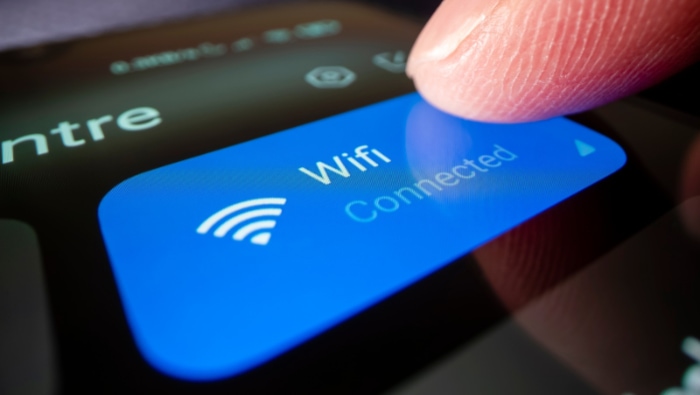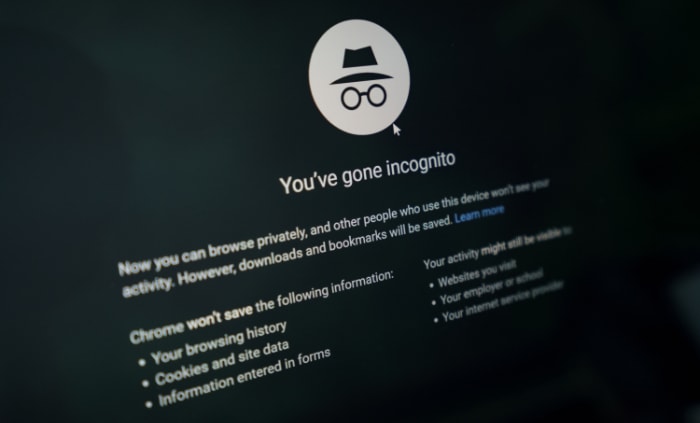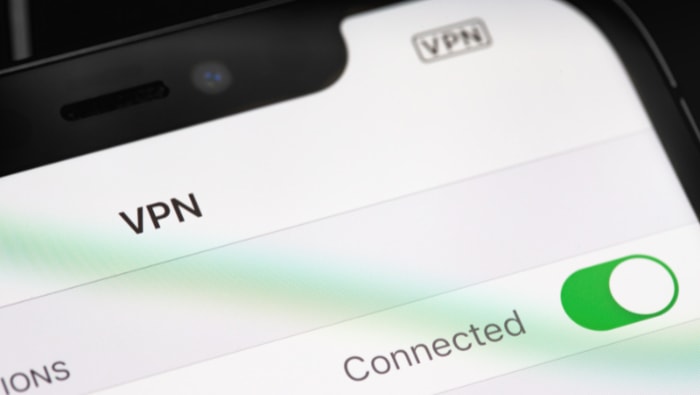Can the WiFi Owner See What I’m Browsing? Here’s the Truth

Online privacy is a growing concern, especially as more people rely on WiFi networks for everything from casual browsing to sensitive transactions. With each connection, information is exchanged between your device and the router, raising questions about just how much the WiFi owner can see.
Is your browsing activity private? Can the websites you visit or the devices you use be tracked? These are questions worth considering, especially on shared or public networks where privacy might be at risk.
What WiFi Owners Can See
When connected to a WiFi network, all internet activity passes through the router before reaching the wider web. This design allows WiFi owners to monitor certain aspects of your browsing behavior, giving them visibility into specific activities or information.
While they may not see everything, they can track enough details to paint a partial picture of what you’re doing online, especially if precautions are not in place.
Browsing Activity Visibility
WiFi owners, such as network administrators or those managing the router, can often see the domains or IP addresses of the websites you visit. This information is typically logged by the router as a record of web traffic.
For websites with HTTPS encryption, the content of your activities remains hidden, but the domains themselves—such as example.com—are still visible. In addition to these records, the router may store metadata such as timestamps, showing when each website was accessed, and data usage patterns, which reveal how much bandwidth was consumed during different periods.
For example, if you’re streaming videos or downloading large files, this activity might be noted in the form of data volume, even if the specific content is not exposed. This means that while the owner may not know the exact video or file, they could infer your general online behavior based on data usage trends.
Device Information
WiFi routers log not only browsing activity but also track the devices connected to the network. Each device has a unique identifier called a MAC (Media Access Control) address, which allows the router to differentiate between connected devices.
Alongside this, basic details—such as the device type, operating system, and connection duration—may also be accessible.
For example, the WiFi owner might see that a smartphone, a laptop, and a smart TV are all using their network. If the owner is using advanced tools or third-party applications linked to the router, they may even be able to label devices or monitor their activity in real time.
This level of visibility can be unsettling for individuals concerned about their digital privacy, as it provides insight into not just browsing habits but the devices you use.
Unencrypted Traffic
Traffic that is not encrypted is particularly vulnerable to monitoring. When you visit non-HTTPS websites, the data being transferred between your device and the server is sent in plain text.
This means the content of the pages you visit, forms you submit, or messages you send could potentially be visible to the WiFi owner. In contrast, HTTPS websites encrypt this data, making it far more secure and protecting the details of your interactions.
Unencrypted traffic also extends to certain mobile apps that lack proper security measures. Some older or poorly designed apps fail to encrypt their communications, exposing sensitive user data over the network.
This could include usernames, passwords, or other private details, making it crucial to pay attention to the security of the websites and apps you use when connected to any WiFi.
Privacy Tools and Their Limitations

Protecting your online activity often starts with tools and technologies designed to enhance privacy. However, no tool is perfect, and each has its strengths and weaknesses.
While methods like incognito mode, HTTPS encryption, and DNS tools can provide protection against certain forms of tracking, they are not foolproof. It is important to recognize what each tool offers in terms of privacy and where vulnerabilities might still exist.
Incognito Mode
Incognito mode, offered by most modern web browsers, is often misunderstood. Many people assume it provides complete anonymity, but its actual function is much narrower.
When enabled, incognito mode ensures that your browsing history, cookies, and form data are not saved locally on your device. This makes it useful for situations where you want to prevent others with access to your device from seeing your activity.
However, incognito mode does not shield your activity from being visible on the network level. WiFi owners can still view the websites you access, as well as the metadata associated with your browsing.
Your internet service provider (ISP) and any monitoring tools attached to the router are unaffected by incognito mode. Its primary benefit is local privacy, meaning it only hides your activity from other users of your device, such as family members or colleagues, without obstructing external tracking.
DNS Requests
DNS (Domain Name System) requests are a critical part of how the internet functions, converting domain names like www.example.com into the server’s numerical IP address. Whenever you type a website’s URL into your browser, your device sends a DNS query asking for its IP address.
These queries are often transmitted as plain text, meaning they are unencrypted and, therefore, visible to third parties like WiFi owners and ISPs.
WiFi owners can log DNS requests to track your browsing habits, even if the websites themselves are protected by HTTPS encryption. For instance, while they may not know which specific page of a site you visited, the DNS logs will show every domain you accessed.
How to Protect Your Browsing Activity

When connected to a WiFi network, taking steps to safeguard your browsing activity is essential to maintaining privacy. Whether you’re on a public hotspot or using shared internet at home, there are tools and strategies that can help obscure your online behavior and make it significantly harder for WiFi owners to monitor your activity.
Using a VPN
A Virtual Private Network (VPN) is one of the most effective tools for securing your internet activity. VPNs work by encrypting all of your web traffic and routing it through a secure server before sending it to its destination.
This encryption ensures that anyone monitoring the network, including WiFi owners, cannot see the websites you visit or the content of your online activity. Instead of direct traffic between your device and websites, the network owner only sees encrypted data being transmitted to the VPN server, effectively masking your browsing habits.
VPNs also offer additional benefits, such as concealing your IP address. By routing traffic through a server in a different location, VPNs create the appearance that your internet activity originates from somewhere else, adding a layer of anonymity.
Be sure to use a trusted VPN service with a no-log policy to maximize privacy and ensure that your data is not inadvertently shared with third parties.
Enabling DNS-over-HTTPS
DNS-over-HTTPS (DoH) is a powerful feature that helps secure your domain name queries. Normally, DNS requests are sent as plain text, allowing WiFi owners to log the domains you visit.
DoH encrypts these queries, ensuring that the information remains private. Even if someone intercepts your DNS traffic, they will be unable to determine which websites you are trying to access.
Many browsers now support DoH, making it easier to enable this feature. By encrypting DNS requests, you not only protect the domains you visit but also reduce the risk of DNS-based attacks, such as spoofing or interception.
Combining DoH with other encryption tools, such as a VPN, can create a robust shield against network surveillance, making it difficult for WiFi owners to monitor your online behavior.
Privacy-Focused Browsers
Certain web browsers are specifically designed to prioritize user privacy, offering enhanced protection against tracking and monitoring. For those concerned about WiFi owners seeing their browsing activity, using a browser like the Tor Browser can add an additional layer of security.
Tor anonymizes web traffic by routing it through multiple servers before it reaches its destination, making it nearly impossible for anyone to trace your activity back to your device.
Other browsers, such as Brave, block third-party trackers and offer features like integrated ad-blocking to improve privacy. Additionally, many privacy-focused browsers have built-in options for enabling HTTPS on all websites, reducing the risk of unencrypted traffic exposing sensitive information.
While no browser can completely eliminate tracking on its own, combining one with other tools like VPNs and DoH creates a stronger defense against network surveillance.
Risks on Public and Shared Networks

Connecting to public or shared WiFi networks can expose your online activity to monitoring or even malicious attacks. While convenience is often the main reason for using these networks, it is important to consider the potential risks to your privacy and security.
Both public and shared WiFi environments create opportunities for others to observe and collect data about your browsing habits, making it necessary to practice caution when accessing sensitive information.
Public WiFi Vulnerabilities
Public WiFi networks, such as those found in cafes, airports, or hotels, present significant vulnerabilities. Open networks with no password protection allow anyone within range to connect, which increases the risk of data interception.
Hackers or individuals with malicious intent can exploit these unsecured networks to eavesdrop on your internet activity or steal personal information. Even seemingly secure public WiFi networks that require a login can still be monitored by the network owner or other connected users with advanced tools.
Unsecured hotspots further amplify these risks, as they leave your device exposed to attacks such as man-in-the-middle (MITM) breaches. These attacks occur when an individual intercepts your communication with the WiFi router, allowing them to access sensitive details such as passwords, credit card numbers, or private messages.
Using public networks without adequate protection can put your privacy and data at significant risk.
Shared Network Concerns
Shared WiFi networks, commonly used in workplaces, schools, or private homes, come with their own set of privacy challenges. On these networks, the administrator or owner of the WiFi can monitor the activity of all connected devices.
For example, an employer might track web usage to enforce company policies, while a school administrator could monitor student behavior online. Similarly, in homes with shared WiFi access, the primary owner of the network may have access to logs showing connected devices and browsing activity.
Shared networks also introduce concerns about trust. Even if the WiFi owner isn’t actively monitoring activity, they may inadvertently use router software or third-party applications that automatically log internet traffic.
This can create an environment where privacy is compromised, especially if sensitive or personal browsing data is exposed to others using the same network.
Best Practices for Public Networks
When using public WiFi, it is wise to avoid activities that require sensitive information, such as online banking or shopping. Conducting these types of tasks on a vulnerable network leaves critical data open to interception.
If possible, using a VPN can offer encryption and anonymity, making it harder for anyone on the same network to access your browsing activity.
Simple measures, such as turning off file sharing or limiting automatic connections to open WiFi networks, can also reduce risks. For added safety, ensure that your device’s firewall is enabled and avoid entering personal credentials on suspicious websites.
Public WiFi networks may be convenient, but caution is essential to prevent privacy breaches and protect your data.
Conclusion
WiFi owners have the ability to monitor certain aspects of your online activity, from the domains you visit to unencrypted data and device identifiers. Public and shared networks magnify these risks, creating opportunities for privacy invasions or even malicious attacks.
Being aware of what can be seen on a network is the first step in taking control of your online security.
Tools like VPNs, DNS-over-HTTPS, and privacy-focused browsers offer valuable solutions for keeping your browsing activity private. VPNs encrypt all web traffic, masking it from prying eyes, while DNS-over-HTTPS ensures that your domain queries remain secure.
Privacy-focused browsers add an extra layer of protection by blocking trackers and anonymizing traffic, making them an essential choice for those who value discretion online.
While WiFi networks offer ease of access and flexibility, protecting yourself against potential threats allows you to use these networks without compromising privacy. Staying proactive with the right tools and habits ensures a safer, more private internet experience, no matter where or how you connect.


